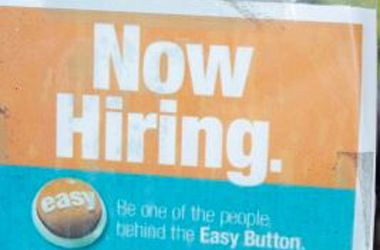Why The Fed, Bernanke Won't Taper QE In September [VIDEO]

Wall Street managed to edge out gains on Tuesday, the first day of trading in September, which is historically the worst month of the year on average for the U.S. stock market.
In mid-day trading, stocks were mixed after House Speaker John Boehner said he would support U.S. President Barack Obama’s call for military action in Syria; however, better-than-expected economic reports pushed stocks slightly up, while ongoing fears over Syria paired gains.
Mark L. Newton, chief technical analyst at Greywolf Execution Partners, spoke with the International Business Times from the floor of the New York Stock Exchange to discuss economic events to watch this week, including tensions in Syria along with the highly anticipated employment report for August.
“People obviously have a lot of concern about what the jobs report is going to do later in the week,” said Newton. “Two weeks from now, obviously, is the Fed meeting.”
Speculation has swirled for months on when the Federal Reserve will taper its $85 billion-a-month bond-buying program. Ahead of the Fed’s September meeting, the Labor Department is scheduled to issue its August employment report on Friday at 8:30 a.m. Eastern.
Economists polled by Reuters expect nonfarm payrolls to rise by 175,000 in August, up from the 162,000 gain in July. The unemployment rate is expected to remain unchanged from July at 7.4 percent for August.
Over the weekend, Obama announced the U.S. will take military action against Syria for its alleged use of chemical weapons, pending Congress’s approval.
“This whole Syria conflict has been put I think to some extent on the back burner and now it’s starting to rear its head again,” said Newton. “People want a little bit more clarity and direction, and right now we’re just not getting that. We don’t really know where we stand. It’s like a big poker game right now where we’re seeing a bluff and they keep re-raising us off our hand. At some point when you promise you say you have to do something, then you have to do it in order to save face at the very least.”
As the Federal Reserve prepares to hold its next policy meeting on September 17-18, recent mixed economic data could mean the Fed may wait to announce scaling back its stimulus program.
“I’ve been saying for a while that I don’t think they probably will say anything because the data simply doesn’t meet what they said in the first place,” said Newton. “You have a number of different Fed governors whose forecasts are at least a full percentage point above where we are.”
Fed Chairman Ben Bernanke announced in May the central bank may consider tapering its bond-buying program if the employment outlook improved substantially, and added the central bank is ready to continue or shrink stimulus based on U.S. economic data.
“Looking back at the last couple of years, we haven’t really seen the benefit of any of this QE,” Newton said. “The first time was obviously essential back in '08 and early '09; but, at this point we haven’t seen the benefit and if anything it’s just adding more and more to the Fed’s balance sheet at a time when interest rates have really started to rise, and that can be problematic as we’ve seen with some of the financials over the last month.”
On the economic calendar for Wednesday, investors will be watching motor vehicle sales for the month of August, the Federal Reserve’s Beige Book, and the trade deficit for July.
The Dow Jones industrial average rose 23.65 points, or 0.16 percent, to close at 14,833.96. The S&P 500 Index was up 6.80 points, or 0.42 percent, to end at 1,639.77. The Nasdaq Composite Index was up 22.74 points, or 0.63 percent, to finish at 3,612.61.
© Copyright IBTimes 2024. All rights reserved.





















